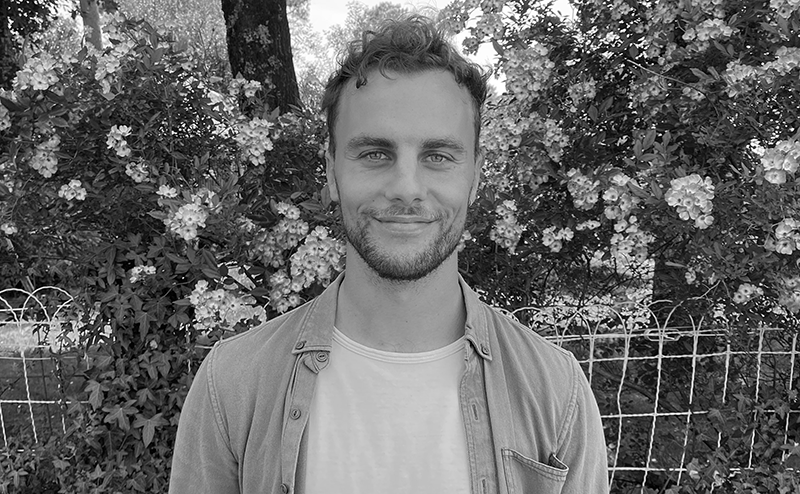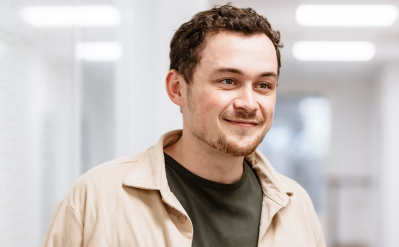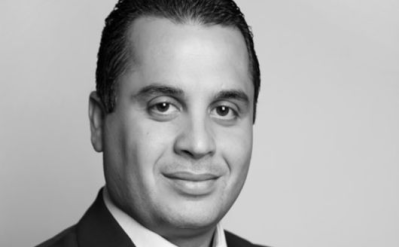News

Leo Malet (SKEMA 2016), Co-founder of Goyaa
Interview with Leo Malet, Co-founder of Goyaa, an agency helping companies to affirm and meet their social and environmental commitments. A must if they want to survive!
Could you tell us about your studies at SKEMA and how they influenced your move into entrepreneurship?
I joined SKEMA in September 2012, on the Sophia Antipolis campus. The diversity of the courses pushed me to take a holistic approach to business and the associations on campus gave me the opportunity to apply and test the concepts learned in class. This multifaceted approach to business made me want to go a step further when choosing my Master's degree. In 2015, I joined the Entrepreneurship & Innovation Master's programme, which taught me the basics of creating innovative businesses. Thanks to the involvement of a large number of companies, we got the opportunity to work on real-life cases and more easily imagine ourselves in the realities of entrepreneurial life.
What inspired you to set up an agency focused on assisting companies with their social and environmental commitments?
I think I’ve always been aware of environmental and social issues, and while this wasn't reflected in my early work experiences, it only took the subject coming back into the media spotlight for me to realise that I wanted to contribute to the collective effort, and not just as an individual. When we talk about changing our societies, we often identify 3 levels of action: politics, the individual, and the company. After almost 4 years of going through my own personal transition, I think I've reached a kind of upper limit in my personal evolution. At the same time, I'm increasingly feeling like I can legitimately tackle these issues in the business world. It seems only natural to go into business consultancy before, who knows, throwing myself into the last corner of the triangle: politics.
How have the skills you acquired at SKEMA proved useful in setting up and managing your agency?
The school taught me basic skills like project management and interpersonal skills, which are essential in my daily work with clients.
But because of the way SKEMA’s learning path is set up, I gained more than skills; I was able to learn methods and develop a certain mindset without necessarily realising it.
All these skills are the fruit of interactions with other students, professors and companies, and have trained my mind to always be “solution”-focused. It's thanks to this positive approach that we can be both technical and realistic in helping companies make structural and strategic changes to their organisations.
Can you explain the precise nature of the support you offer through Goyaa?
At Goyaa, we offer tailored support in designing, implementing and monitoring impact strategies. In more concrete terms, we specialise in supporting companies that want to become so-called “mission-driven companies”.
This new status, called “société à mission” in French, stems from France’s PACTE law of 2019, and it gives all companies wishing to make a positive contribution to society a framework for moving forward in a very concrete way.
It's a framework that combines self-reflection and action, enabling companies to question their social usefulness and embark on a profound but gradual transformation of their business.
The positive external effects are many: improved brand image, greater employee engagement, higher quality relationships with partners, and anticipation of transition and climate risks for example.
What are the main challenges companies face in this area, and how can your agency help overcome them?
Companies face a multitude of challenges, and they are all risks these need to take into account if they are to continue to exist in the future.
Example: close to 1 in 2 employees is ready to leave their job to go work for a company more committed to the transition. This indicates that CSR plays a major role in uniting and retaining existing talent, but also in attracting fresh talent.
Today, companies find it hard to commit to a long-term vision, transform their business model and engage their stakeholders in a sincere and transparent way.
Taking the “mission-driven company” path enables them to do that.
However, external support is very often needed to move from theory to practice, and companies with fewer than 100 employees don’t find offers to fit their budget and their need to move forward independently.
That's why at Goyaa we propose a unique method, with an offer built around a methodological guide and hours of advice positioned at strategic moments along the way.
The idea is to offer an affordable solution designed for these companies.
How do you see CSR evolving over the years, and how is your agency adapting to changes in this field?
CSR has been evolving super-fast in recent years and is becoming increasingly important in companies, but in practice it is often limited to taking into account the negative externalities of the company.
Today, companies are being called to account: publication of extra-financial information, data transparency and substantiation of claims, increasingly stringent social and environmental certification criteria, supplier demands and CSR preconditions of investors... These new requirements call for a profound transformation of the company at every level: adaptation of the business model, new governance, transformation of practices, and a great capacity for self-analysis.
With all the talk these days of CSR, impact, and “mission-native” companies, it’s hard not to get lost! At Goyaa, we help companies find their way back to meaning: how to undertake a social and environmental transition without falling into greenwashing, and without jeopardising their economic viability...
We’ve chosen to address the issue using the “mission-driven company” (MDC) framework, because it’s the one that makes the most sense to us today. It’s not a uniform label, but a framework for progress that is specific to each company. First and foremost, the MDC calls for self-reflection that is both fascinating and necessary, followed by a super-precise, ambitious and realistic action plan that enables companies to see their progress, in a salutary effort towards transparency!
In terms of governance, the new framework offered by the “mission-driven company” status enables management to be included in discussions and all stakeholders to be involved. By introducing a new internal governance structure (a mission committee) and audits by independent third-party organisations, the company ensures that its transformation will take place at all levels and in a concrete manner.
To support this change, our strategy is to surround ourselves with various expert partners (legal, compliance, scientific, etc.) who enable us to co-construct comprehensive and serious action plans. We don’t know how to do everything, and it’s important to recognise that. Everyone has their own area of competence, and part of our job is to direct our clients to the right people.
On our side, we have two very complementary profiles and that is a strength. My partner, Camille, comes from the field of cybersecurity, having worked in both the public and private sectors. She has experience in the framework and regulations, and she takes a risk management approach that is essential to company transitions. Camille also ensures the agency behaves ethically, and works on the philosophical subjects that are essential to the MDC path, such as commitment, purpose, meaning and mission.
After spending 6 years in a company devising, creating and driving business strategies, I like to tell people that I’ve gone from increasing sales to decreasing CO2. I’ve discovered a creative side to me that allows me to think outside the box and imagine new business models that are fairer and more sustainable while still being economically viable. It’s a very demanding and stimulating form of mental gymnastics.
What advice would you give to companies looking to introduce more sustainable and socially responsible practices into their operations?
First, I’d tell them to take stock of their current situation: there are simple ways to assess a company’s maturity in these areas. That’s the first step: know where you’re starting from, so you can set concrete objectives.
And for companies wanting to make a greater commitment: become a mission-driven company and let us support you!
Today, all companies have CSR strategies, but many are becoming aware of certain limitations: CSR is often worked on in silos, and CSR is struggling to be adopted at the managerial level.
The mission-driven company path is a solution to this problem.
Virtually all companies today turn to outside help for certain tasks; it's become routine (I'm thinking of recruitment, business strategy, etc.), and I think it’s super important to also do this when going down the mission-driven company road, particularly in the beginning.
This will help to build strong foundations for an action plan that will have all the more impact.
What are your future projects with Goyaa?
At Goyaa, we're convinced that the key to corporate change lies in raising awareness and co-constructing a plan with all employees. At the same time, we know that these subjects are complicated to tackle, given the busy agendas and emotional aspects involved.
That's why we're actively working on the creation of a groundbreaking service that will enable all CEOs, managers, HR managers or CSRs to reconnect employees with each other in a fun and engaging way. We're still in the MVP confirmation phase, so we can't tell you much more, but it'll be out very soon!
And as for our next very concrete missions, we're delighted to be working with our community of communes on a public awareness project called "les défis de la sobriété heureuse" (the challenges of happy sobriety), aimed at the citizens of the Landes region.
How can SKEMA and/or the alumni network help you launch Goyaa?
Today, the SKEMA network is an incredible force, and we want to play an active part in it.
There are many synergies with alumni, but I'll give you 3:
- The most obvious: we'd be delighted to help former skémiens co-create impact strategies for their companies.
- The most collaborative: we co-develop offers with freelancers and companies in the impact field to pool our strengths, and we'd be delighted to do so with alumni.
- The most original: test the MVP of the project I mentioned earlier! We'd be delighted to give you an exclusive sneak preview!
For these 3 points, the easiest way is to contact me on LinkedIn (aka my new playground!), and I'll get back to you with great pleasure.
What advice do you have for starting out as an entrepreneur when you come from a corporate background?
- Understand the reasons that motivate you: accept the "bad" ones, and concentrate fully on the "good" ones.
- Talk to entrepreneurs who've been there.
Take the plunge knowing that you can fail, but take the plunge so you don't regret it!






